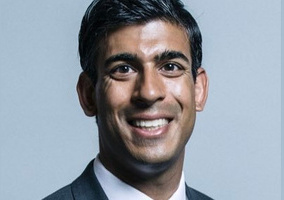Large charities received more than a quarter of emergency Covid-19 government funding aimed at smaller community organisations, it has emerged.
Hundreds of grants from the Coronavirus Community Support Fund (CCSF) were awarded to charities with incomes over £1m, even though the fund was established to help small and medium-sized charities cope with the impact of the pandemic.
An independent evaluation of the CCSF by the polling company Ipsos MORI, published this week, showed that one in 10 grants were won by large charities, including some charities worth more than £100m a year.
The funding was distributed by the National Lottery Community Fund (NLCF).
£200m fund
Chancellor Rishi Sunak announced the creation of the £200m CCSF in April last year, as part of a financial package which he said was targeted at “small and medium-sized charities” working “at the heart of local communities”.
The evaluation shows that millions of pounds was awarded to local charities, but DCMS confirmed that some of the money also went to several very large national bodies.
The evaluation report said that “the CCSF was targeted at small and medium-sized community organisations delivering activities and support to people affected by the COVID-19 crisis” and found that “the majority” of grant awards and funding went to small charities.
Around 23% of the total funding was given to charities with an income between £10,000 and £100,000, and 47% went to charities with an income between £100,000 and £1m.
However, the evaluation also noted that “a quarter of CCSF funding was distributed to large, major or super-major charities”, which won around one in 10 of all the grants available.
It added that officials at DCMS and NLCF felt that “the right balance was struck in terms of the size of organisations who received the funding”.
‘Decision was taken’ to support large charities
Despite the chancellor's pledge in April 2020, the possibility of funding large charities was included in NLCF’s guidance by the time the CCSF launched five weeks later.
The guidance said: “We know that small and medium-sized charities are likely to be more vulnerable right now. So we encourage applications from those organisations, including micro charities, though we can consider applications from larger organisations on a case-by-case basis.”
The evaluation report said: “There was reported to have been some early discussions about potentially limiting funding to organisations with a turnover of less than £1m.
“However, the decision was taken to include a small proportion of those with turnover of more than £1m, with most of the funding still going to the smaller end of the sector.”
Small Charities Coalition: Government must ‘level the playing field’
Rita Chadha, the chief executive of the Small Charities Coalition, said: “While we would never begrudge any charity or organisation doing good getting financial support from the government, it is always the case that larger charities seem better able to lobby and make their case to central government.
“We need the government to understand that if levelling up is really to work, then there is a need to also level the playing field between large and small charities.
“This could be easily done by encouraging larger charities to fairly include small charities in their delivery plans, and treat them as equitable partners. The days of funding always being driven by those that can mobilise on a mass scale has to be balanced against a real need to drive inclusion, equity and change from the ground up.
“Time and time again it is small charities that are best placed to deliver and sustain their communities. The lack of continuing investment and overly bureaucratic barriers to accessing government funding do nothing to help the cause of small charities.”
Beneficiaries
Eight out of 10 applicants surveyed for the evaluation said that they were satisfied with the funding process, and seven out of 10 charities awarded grants described the application process as “easy” or “very easy”.
A quarter of CCSF funding went to charities supporting people with disabilities, while a fifth went to organisations working with Black and ethnic minority beneficiaries. Around 3% of funding went to charities helping LGBTQ+ communities.
Grant decisions took 61 days on average, and then a further nine days to distribute funding to successful charities, the evaluation said.
More ministerial involvement
The report said that the joint impact of extra workload and reading distressing evidence about the needs met by charities had a “negative affect” on NLCF staff, who received more wellbeing support as a result.
It also quoted a recommendation from one individual that government ministers should have been more involved in discussions about the ongoing process through which the funding mechanism was designed.
NLCF referred Civil Society News to DCMS for comment.
A DCMS spokesperson said: “The Coronavirus Community Support Fund, distributed by the National Lottery Community Fund, formed part of the unprecedented multi-billion-pound package of government support for charities, social enterprises and the voluntary sector, ensuring they could continue their vital work during the Covid-19 outbreak.”
Editor's note 8 July
This article has been changed to remove the names of large charities quoted by DCMS, which did not receive funding from the CCSF, but did receive other government support.












